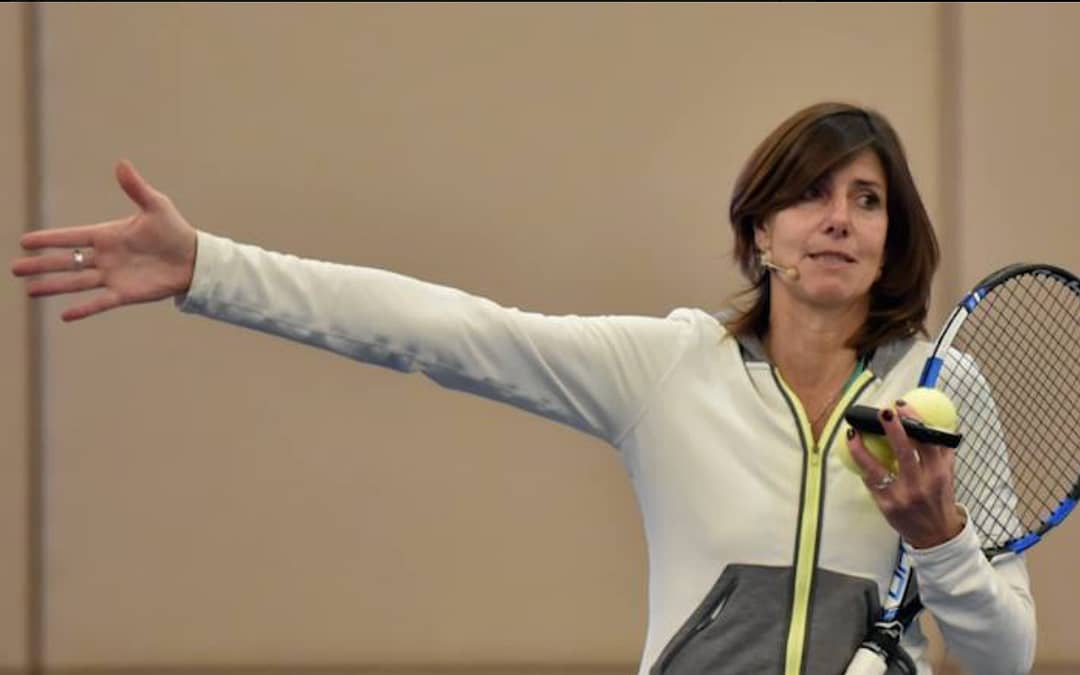“Listen, listen, listen.” According to WTA Tour coach and former collegiate and professional tennis player Biljana Veselinovic, this simple phrase is the most vital key to success when coaching a female athlete.
Veselinovic has over 15 years of experience coaching top-level players, including Aleksandra Krunic, Lucie Safarova, Alize Cornet, Katarina Srebotnik, Nadia Petrova, Vojislava Lukic, Borka Majstorovic and Sandra Nacuk. She has also captained the Yugoslavian National Team for the 14, 16 and 18 age-groups and served as the Fed Cup Captain for Serbia and Montenegro for eight years.
In addition to her coaching credentials, Veselinovic was a top-level player for the Serbian National Team and received a full scholarship to play at the collegiate level in the United States. After graduating with a Business Marketing degree from the University of South Carolina, she initially opted to pursue a career outside of tennis.
However, she quickly realized that sports marketing was not the correct path and stepped back onto the court to coach a group of 10-year-olds in Serbia. Just two years later, that group became Serbian 12 & Under National Champions. As a result of her athletes’ success, Veselinovic quickly became one of the top coaches in the region.
Without formal training, Veselinovic opted to expand her knowledge by attending workshops and taking courses with the ITF. She recalls spending 12 days on the court and in the classroom at an ITF course in Latvia. “When we finished the course, I was one of the best students, and the ITF asked me to be one of the teachers for the Balkan region,” she said. “Soon after, I was conducting courses in Bosnia and Serbia. I wanted to continue learning from as many coaches as possible.”
Not long after conducting the courses, Veselinovic began working with Katarina Srebotnik and has been coaching on the WTA Tour ever since. Nonetheless, her experience on the Tour has not come without a fair share of challenges.
A mother of two, the grind of spending 25 weeks on the road was difficult for Veselinovic. Additionally, she was one of the only female coaches on the Tour. “It’s tough because not many women coaches are around, although I have had really good experiences with my male colleagues,” she explained.
Veselinovic believes that female players who are just starting out on the tour simply do not have the resources to hire a separate hitting partner and coach, so they often hire men to fill both roles.
She also believes that female players become accustomed to male coaches at an early age, which could potentially be a barrier to increasing the amount of female coaches at all levels. “The players are probably used to having a male coach because that’s just how the numbers work out right now. When they start playing tennis, it’s more likely that they’ll have a male coach. Once they have a male, they get used to a male and don’t have any experience working with a female coach,” explained Veselinovic.
As for changing this narrative, Veselinovic believes that increasing marketing efforts and media attention on current successful female coaches is critical. “We definitely need to grow as a population. If we are bigger in numbers, then hopefully the kids will start having more options to be coached by females. On the WTA level, we need to do something to let players be more aware of possibilities for hiring women coaches, whether it be more marketing, articles, advertisements, or presentations,” she said.
Despite the various challenges that Veselinovic has faced throughout her career, she has remained steadfast in her adaptable coaching style. “I’ve worked with eight different players on the WTA tour, and not once did I use the same method. They are all completely different individuals, and the coach has to adapt to what the player needs,” she explained.
She begins this process by truly getting to know her players on a personal level. “It’s all about spending time with them,” said Veselinovic. “You learn what they like, how they are, what they dislike, how they listen, what they like to be told and what they do not receive at all. We are trying to get to know each other so that we can work effectively with one another.”
Building a strong player-coach relationship is critical to the success of any partnership, but particularly with female athletes. Thanks to flexible, relationship-based coaches like Veselinovic, the goal of keeping more women in the game is one step closer to being met.

